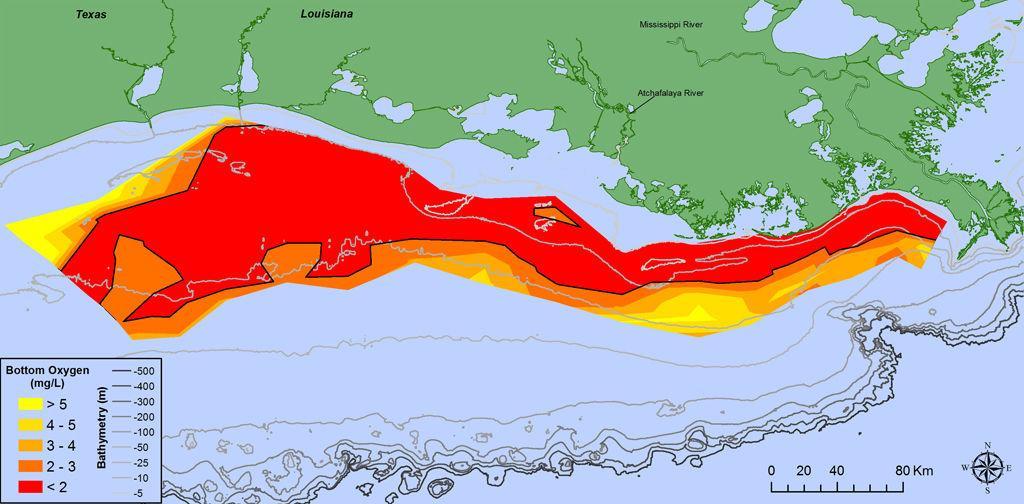LSU Department of Oceanography & Coastal Sciences Professor Nancy Rabalais recently co-authored a paper about deoxygenation in the ocean and coast waters that was published in the journal, Science, on Jan. 5,
according to a news release.
Rabalais said she has been studying deoxygenation in the Gulf of Mexico for at least 34 years.
“There is a large area of low oxygen in the Gulf of Mexico that’s been low in oxygen probably since the 1970s, but we didn’t really get money to start studying it until 1985,” Rabalais said. “We found that it was a large and persistent area in the summer and that it’s related to excess nitrogen inputs from the Mississippi River.”
Rabalais said the increased nitrogen fuels phytoplankton growth. When these phytoplankton die, they fall to the ocean floor, where they are decomposed by bacteria. The bacteria, in turn, use oxygen to power this decomposition.
Although Rabalais’ research focuses on coastal deoxygenation, the paper shows the oceans are also losing oxygen. Rabalais said climate change has increased the temperature of the oceans, and warmer waters hold less dissolved oxygen. Although low oxygen levels happen naturally in some areas, climate change is causing these areas to increase in size.
Rabalais contributed to the paper as part of a group called the Global Ocean Oxygen Network, established in 2016 by the United Nations Educational, Scientific and Cultural Organization (UNESCO). According to the UNESCO website, the Network seeks to increase awareness of deoxygenation and its impacts, with an emphasis on educating
policy makers.
Twenty-two separate authors contributed to the article. Rabalais said it is uncommon for Science to accept so many authors in a byline, but she and all her colleagues were able to successfully prove their contributions. Rabalais was also impressed that Science gave them enough pages.
“To get 13 pages out of Science is saying a lot,” Rabalais said. “Science is one of the premier journals for academic research.
Like climate change, ocean deoxygenation is not an unsolvable problem, Rabalais said. She offered several solutions to keep oxygen in the oceans.
“A solution is to reduce carbon emissions,” Rabalais said, “as well as the use of artificial fertilizers on agricultural fields, which drain into the ocean and are the main cause of most of the coastal declining oxygen.”
Although these are large scale solutions, regular people can help, too. Rabalais said biking, driving fuel-efficient cars and using non-ethanol gasoline are all effective ways to curb the problem. Non-ethanol gasoline is more fuel-efficient, and requires less corn to produce, which can reduce fertilizer use.
Rabalais said students can get ethanol-free gasoline at the new Murphy’s Express at Burbank and West Lee drives. It is more expensive, she said, but it is also more conservative of carbon emissions.
LSU professor co-authors article on ocean deoxygenation
January 16, 2018
A map of dissolved oxygen on the ocean floor using data obtained from the 2017 Shelfwide Cruise.
More to Discover











